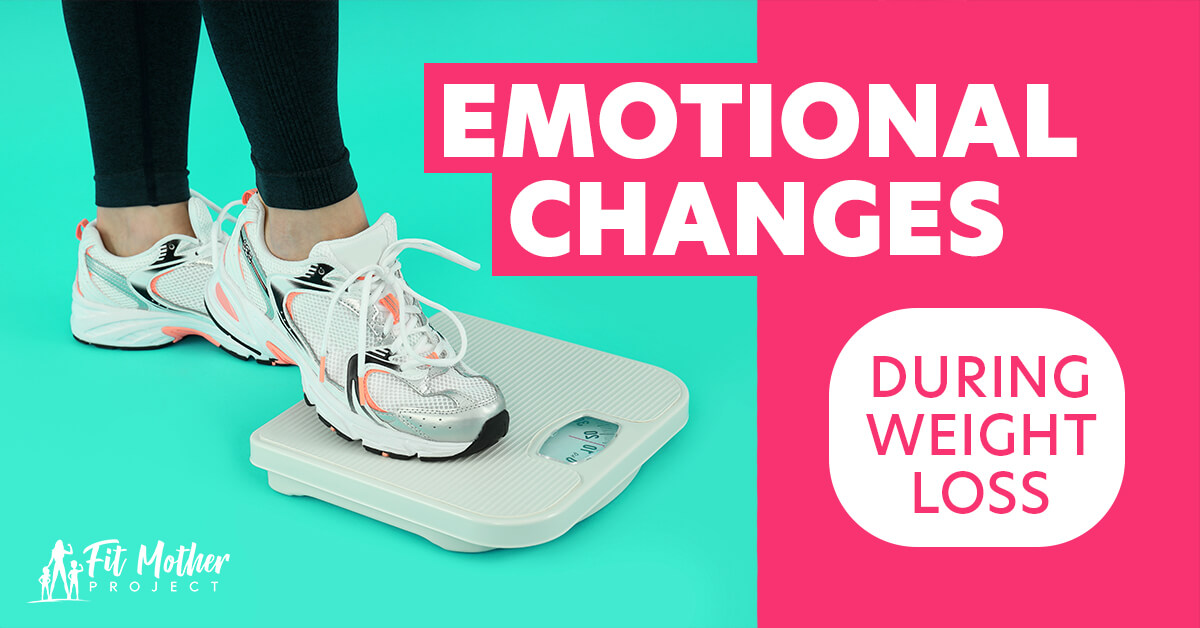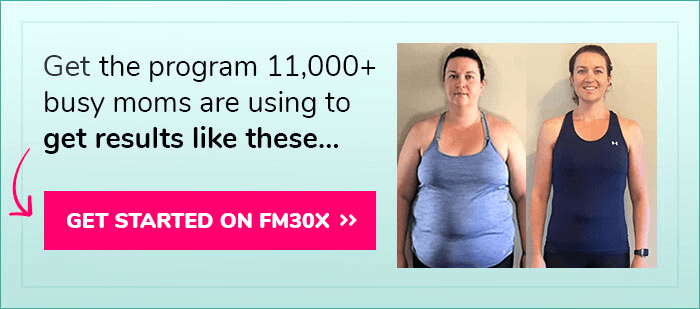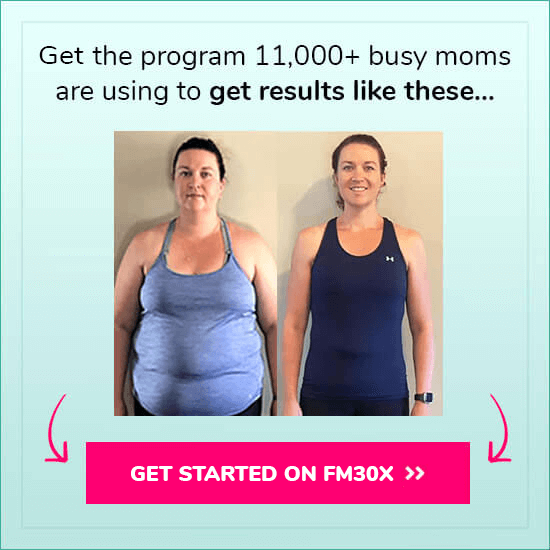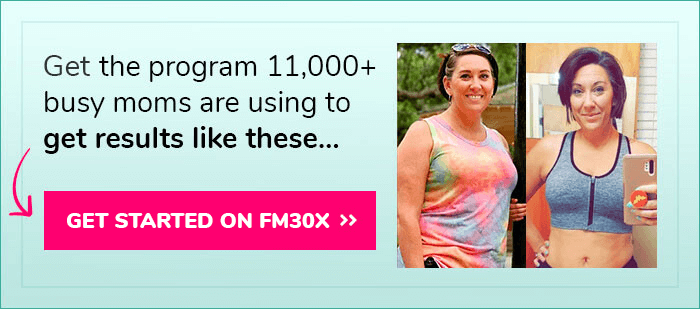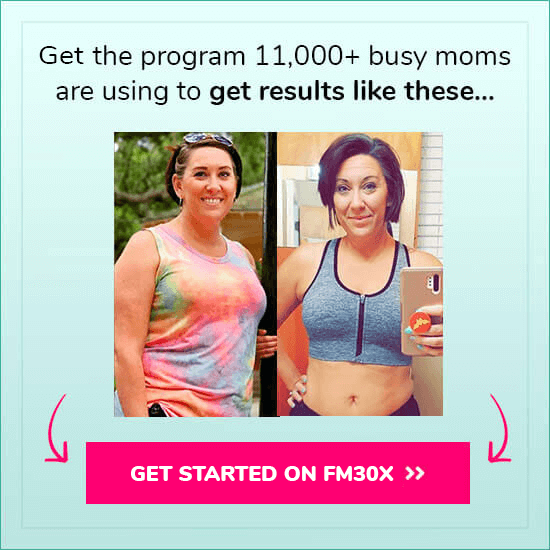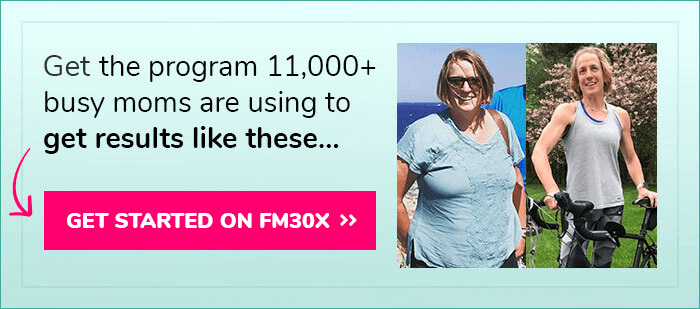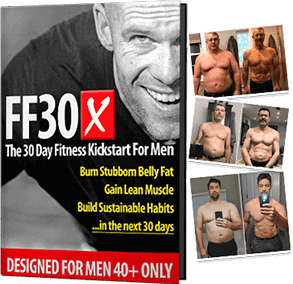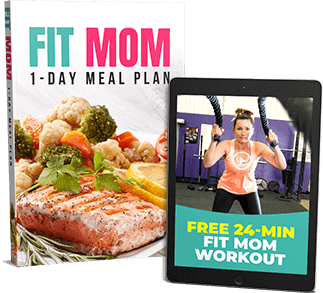The path to weight loss and body transformation is an intense journey. The physical demands are well known, but what about emotional changes during weight loss?
Embarking on a weight loss journey isn’t just about a number on a scale or short-term fixes.
Losing weight involves adopting a new, healthier lifestyle.
This means changing both your physical and psychological outlook about your health.
While exercise and physical activity are essential to weight loss, the mental aspect of changing your views about your health is also key. And oftentimes, this part of weight loss often goes overlooked.
Let's take a look at some emotional changes during weight loss — and how to cope with them.
Learn about the ways you can change your mindset to lose weight!
Emotional Changes During Weight Loss
The emotional toll of weight loss can be broken down into a few different areas. This includes the impact of changing one’s food choices, revamping your approach to exercise, and dealing with how your body changes over time as you approach your weight loss goals.
Nutrition and Weight Loss
Starting from a young age, food is associated with reward and celebration. Holidays like Thanksgiving and Christmas are centered around big dinners followed by traditional desserts. At Halloween, you would swap candy with friends, and on birthdays you would share a big cake with family.
Happy memories are often associated with the aroma of foods, which can trigger our emotions.
There is even a name for rich foods that bring on pleasant feelings, the so-called “comfort foods.” This is because a satisfying meal causes the release of dopamine in the brain. This neurotransmitter is associated with the reward center in the brain and has a significant impact on appetite and food intake.
So you can see how cutting back or cutting out certain foods can be much easier said than done since we link so many of our enjoyable emotions to foods.
Steps to Handle Dietary Changes
In order to combat the emotional impact of dietary changes, there are a few steps you can take to make things a little easier.
Keep A Food Diary
It can be helpful to write down what you eat throughout the day to identify times when you may be doing unnecessary snacking. You should also keep track of portion sizes and calorie/macronutrient intake.
Identify Triggers For Unhealthy Eating
Oftentimes after a stressful day, people look to food as a coping mechanism. Or maybe you turn to food as a way to reward yourself. Sometimes, we simply eat because we are bored!
Whatever your trigger is, when you turn to food, try to ask yourself if you are really hungry, if you are eating for other social reasons, or because you are overwhelmed or stressed out.
Researchers have even found that issues like stress and anxiety can trigger emotional eating, which leads to higher body mass indexes. In addition, studies show that chronic stress may increase the motivation to reward yourself with food, and these cravings may contribute to stress-related weight gain.
Adopt New Ways To Deal With Stress
Once you figure out what your triggers to unhealthy eating are, it can be easier to find new coping mechanisms. There are a number of different ways to handle stress that don’t involve indulging in unnecessary calories.
You can try things like:
- Meditation
- Exercise
- Yoga
- Deep Breathing
Utilizing these stress-reducing techniques will help alleviate some of the emotional burdens of weight loss.
Fit Mother Project is the first sustainable weight loss program designed exclusively for busy mothers just like you... FM30X is the first sustainable weight loss program designed exclusively for *busy* mothers like you... JOIN OUR fit
mother
PROGRAMJOIN OUR FIT MOTHER 30X PROGRAM

Exercise and Weight Loss
When people ramp up their physical activity, they typically only think about the physical challenges that this presents. But adopting a new exercise routine can also have a significant emotional impact.
If you are a beginner, you may not be sure what your body is capable of doing. This can make a new fitness program's first days and weeks extremely intense.
It can be discouraging at first if you are unable to finish a workout or find yourself huffing and puffing for air after a few minutes of activity. This can make you feel disappointed and emotional about reaching your goals, and this is why a lot of people give up on a fitness program too early.
Understanding the emotional impact will help you develop ways to maintain your motivation to continue towards your goals.
You can make short-term goals at first. Instead of focusing on a distant goal of losing 20 pounds, make it a point to exercise three times a week.
Then, you can gradually build on this goal and increase the intensity of your workouts. When you are able to reach your short-term goals, this will motivate you to push yourself even harder to achieve your long-term goals.
Body Changes and Weight Set Backs
When you make a goal to lose weight, this isn’t just because you want to see a smaller number pop up on the scale. It’s also because you want to improve your body composition, gain strength and endurance, decrease your risk of chronic diseases, and enhance your self-esteem.
The path to weight loss, however, is not a straight line where you lose weight every day.
In fact, in the beginning, your weight may go up. And it will definitely fluctuate a lot along the way. As you increase aerobic activity and strength training, your lean muscle mass will increase. This can cause a slight increase on the scale even though your body fat is decreasing and your total body composition is improving.
However, seeing that number go up or stay the same despite all of your hard work can leave you feeling dejected. You may even feel like giving up if you aren’t seeing improvements. This is another point where you need to evaluate the psychological impact that this is having on you.
Once the pounds start dropping, you will also hit a point where your weight starts to plateau. This part of weight loss can make you feel frustrated. The important thing is that you reassess your strategy and make adjustments to your weight loss approach that result in more healthy weight loss over the long term.
The Emotional Impact of Reaching Your Weight Loss Goal
It can be pure joy when you hit your weight loss goal, but the reality of maintaining your new healthy lifestyle can be quite daunting. At this point, your motivation may start to dwindle since you have already achieved your goal.
To stay accountable for your fitness, you will likely need to shift your mindset once more.
You can set new goals to keep you motivated to stay on track. You'll be more inspired to stick with your new lifestyle when you accomplish little things like reaching your water intake goal or making it to the gym more than three times a week.
Don't let the scale be your sole source of encouragement. Also, think about your overall health and fitness goals.
Don’t Forget the Emotional Impact of Weight Loss
The weight loss journey is both a physical and emotional challenge. It is important to remember that changing your outlook on nutrition and exercise isn’t a punishment.
It is about adopting a new lifestyle to carry on for years, and not just about quick fixes.
Once you start losing weight, you will feel more confident and energized. This will provide a great incentive to continue an active and healthy way of living!
Holly is an osteopathic physician, runner, triathlete, and fitness and nutrition enthusiast. She is board certified in nephrology and internal medicine, has a bachelors degree in dietetics and is a certified personal trainer with NASM-PES certification. Holly has completed four full ironmans, twelve marathons, countless half ironmans, olympic distance triathlons, half marathons and numerous other road races. Holly joined the Fit Father Project in May 2019 as a regular writer, contributing articles on health, wellness, exercise, and nutrition. She has also recently qualified for the 2020 World Championships for Ironman 70.3, in New Zealand!![]()
Fit Mother Project is the answer you’ve been looking for. Inside the program, you’ll receive: Our Fit Mother 30X Program (FM30X) is the answer you’ve been looking for. Inside FM30X, you’ll receive:If you’re a busy mom who wants to finally lose weight,
get healthy, and actually keep the pounds off for good,
this is the simple program you’ll love sticking to…
GET STARTED ON FM30X TODAY
If you’re a busy mom who wants to finally lose weight,
get healthy, and actually keep the pounds off for good,
this is the simple program you’ll love sticking to…
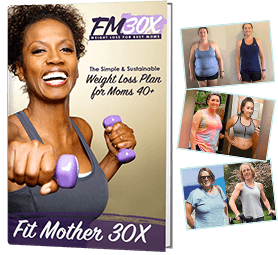
Learn More About FM30X

*Please know that weight loss results & health changes/improvements vary from individual to individual; you may not achieve similar results. Always consult with your doctor before making health decisions. This is not medical advice – simply very well-researched info on emotional changes during weight loss.

